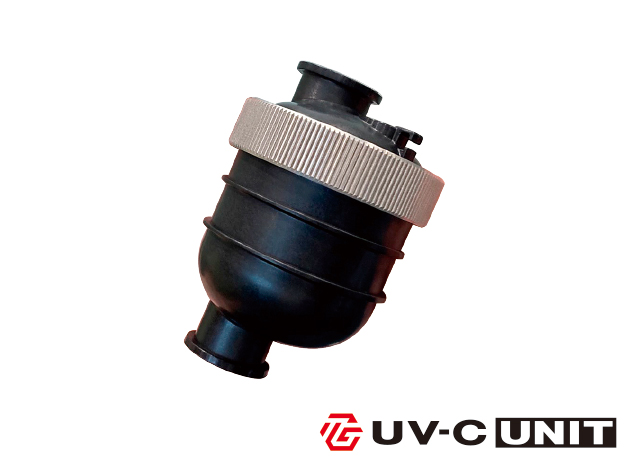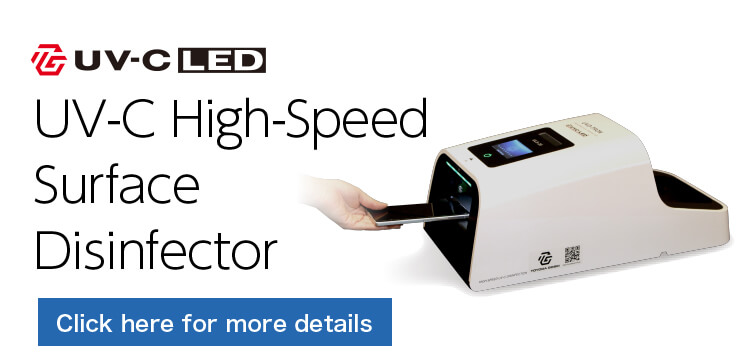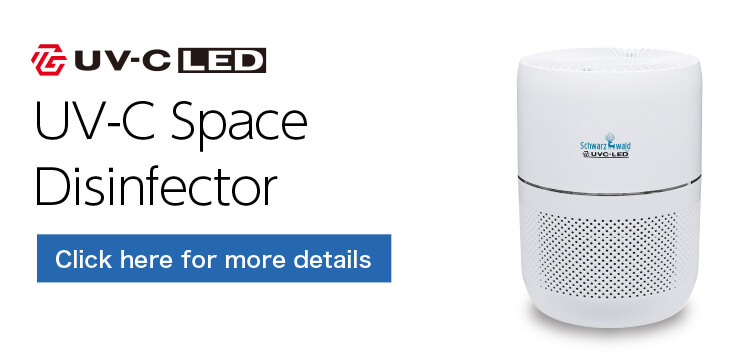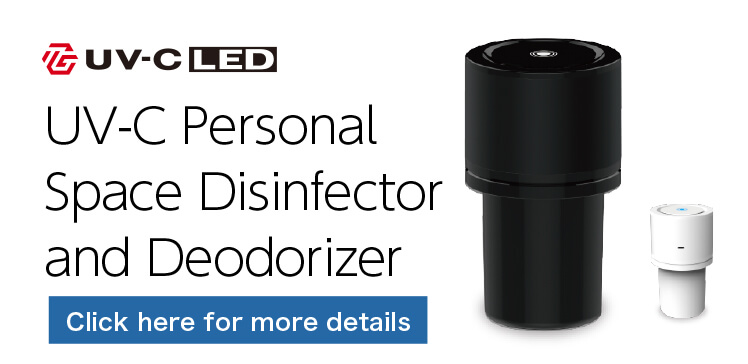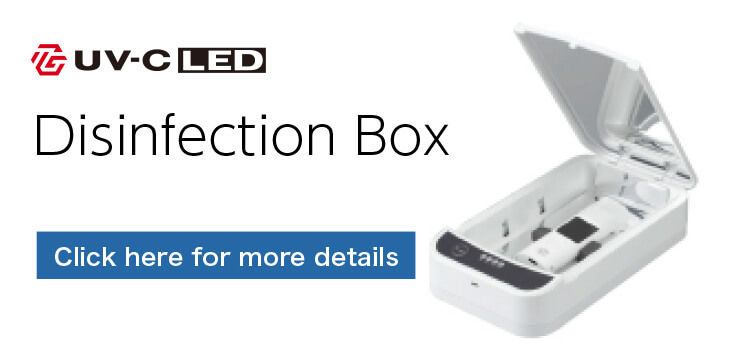By applying our high-brightness blue LED technology cultivated in the field of LCD backlights and lighting, we have developed a high-performance UV-C small water purification unit in the deep ultraviolet region.
We contribute to the provision of clean water.
Ultraviolet (UV) Wavelength and Application Areas
Light with a wavelength shorter than visible light is called ultraviolet (UV) light, and it is classified into UV-A, B, C depending on the wavelength.Different application areas exist depending on these wavelength bands. The UVC wavelength is also called deep ultraviolet.
Leveraging the technology we have cultivated with InGaN-based blue LEDs, we propose AlGaN-based UV-C LEDs and their application products.
Application Areas of UV-LEDs
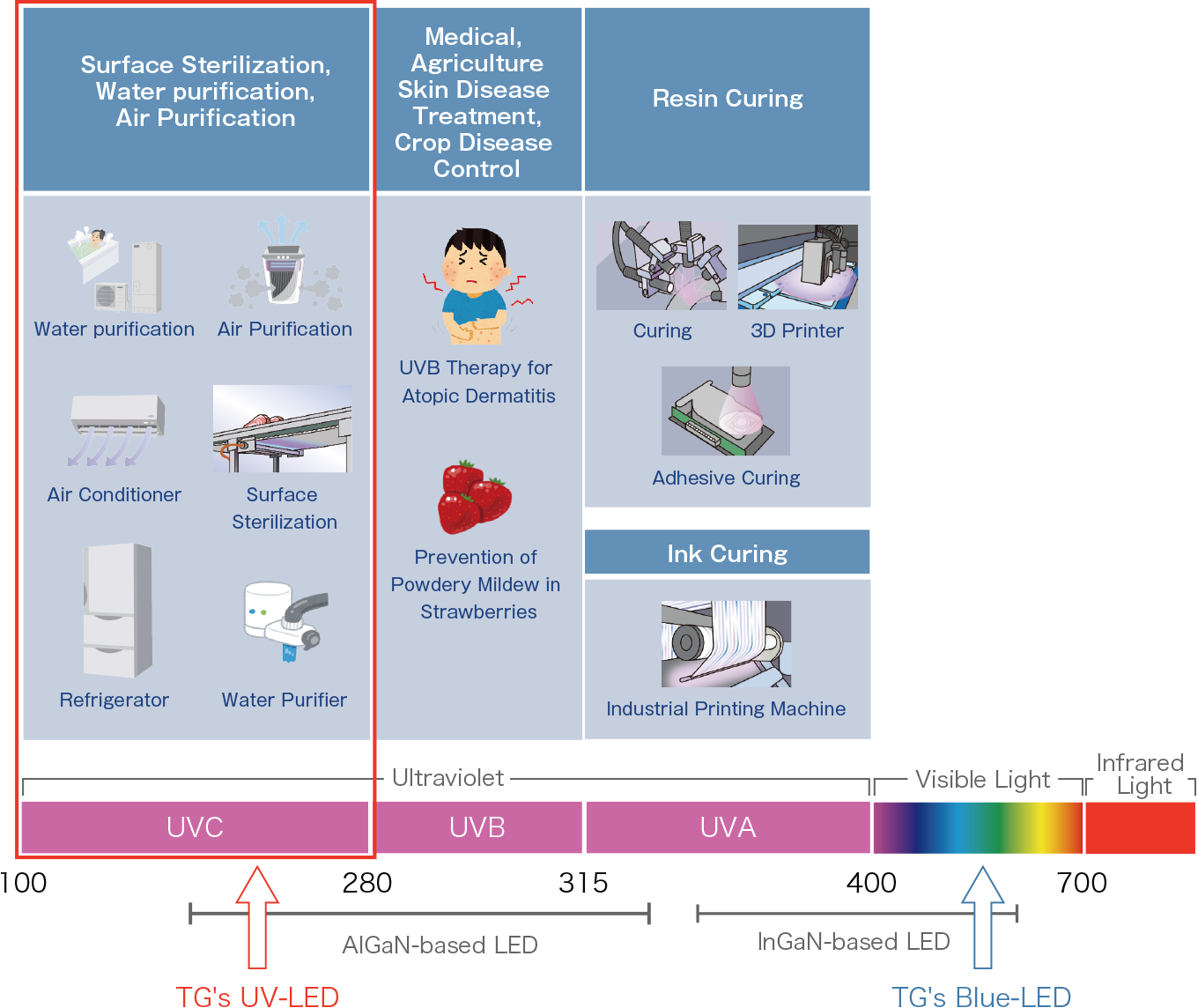
Mechanism of Disinfection (Inactivation) by UV Light
The mechanism of disinfection by UV light is not fully understood, but it is generally said to be as follows.
The disinfection effect is most pronounced in the UVC region, which is less than 280nm.
The UV absorption characteristics of nucleic acids in organisms are in the UVC region (Figure 1).
It is believed that the nucleic acids inside bacteria absorb ultraviolet light, undergo chemical changes, inhibit metabolism, and eventually cause protoplasmic destruction (Figure 2).
The disinfection ability of ultraviolet light can vary depending on the type of bacteria and environmental conditions such as temperature and humidity. However, it can be represented by the multiplication of ultraviolet irradiation energy (mJ/cm²), i.e., ultraviolet illuminance (mW/cm²), and irradiation time (seconds).
- Ultraviolet irradiation energy (mJ/cm²) = Ultraviolet illuminance (mW/cm²) x Irradiation time (seconds).
Furthermore, UVC light has the ability to inactivate microorganisms. In disinfection needs for drinking water and the like, it can not only inactivate E. coli, but also harmful microorganisms such as "Cryptosporidium" that cannot be inactivated by chlorine.
Therefore, UVC light sources are expected to contribute to the provision of "safe water supply".
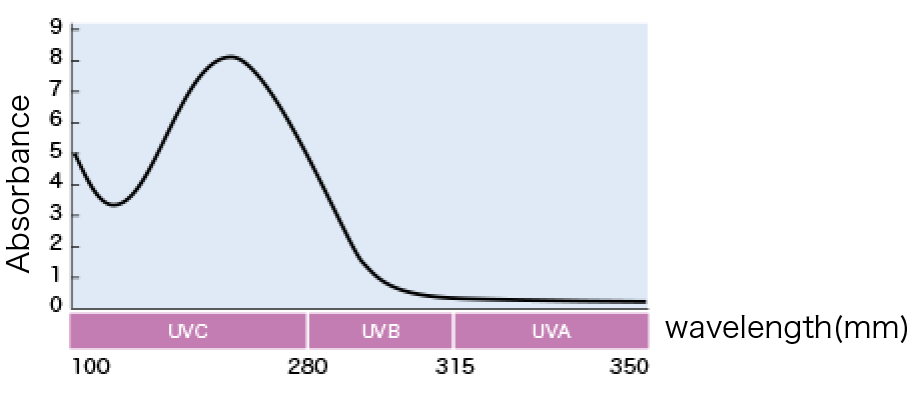
Figure 1: Absorption spectrum of nucleic acids in the ultraviolet region.
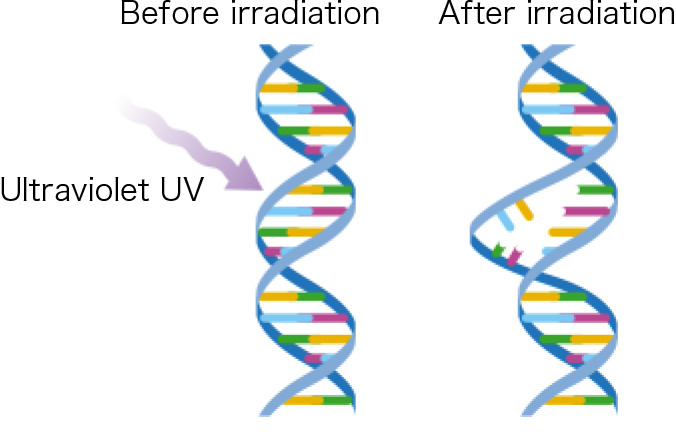
Figure 2: Image of nucleic acid destruction by UV light.
We are conducting tests of deep ultraviolet irradiation on various bacteria and viruses using our UV-C LED technology.
Please refer to this page for the test results.
Click here for the "Deep Ultraviolet Irradiation Test Results" page.
Comparison with traditional UV light sources (mercury lamps)
UV-LED   |
Mercury Lamps   |
|||
|---|---|---|---|---|
| ①Environmental impact | ◯ | Mercury-free | × | Mercury use |
| ②Lighting | ◯ | Instant lighting | × | Takes time to light up (warm-up time is required) |
| ③Operating voltage | ◯ | Low voltage, several volts | × | High voltage, 100 to several tens of thousands of volts |
| ④Size | ◯ | Both the light source and power supply are compact |
× | Both the light source and power supply are large |
Toyoda Gosei's High power UV-C LED
Toyoda Gosei Develops UV-C LED with World-Class Light Output
We succcessfully developed 275nm UV-C LEDs that achieve light output at the level of 200 mW with a single chip driven by a current of 350mA.
Improvement of the LED structure and composition quadrupled the amount of light that can be extracted.
Enhanced LED performance including disinfecting capability of about three times
higher will expand their applicable areas including a future alternative to mercury lamps,
contributing to more hygienic and safer living. * As of March 31, 2024. Toyoda Gosei survey
[Comparison to our previous LEDs]
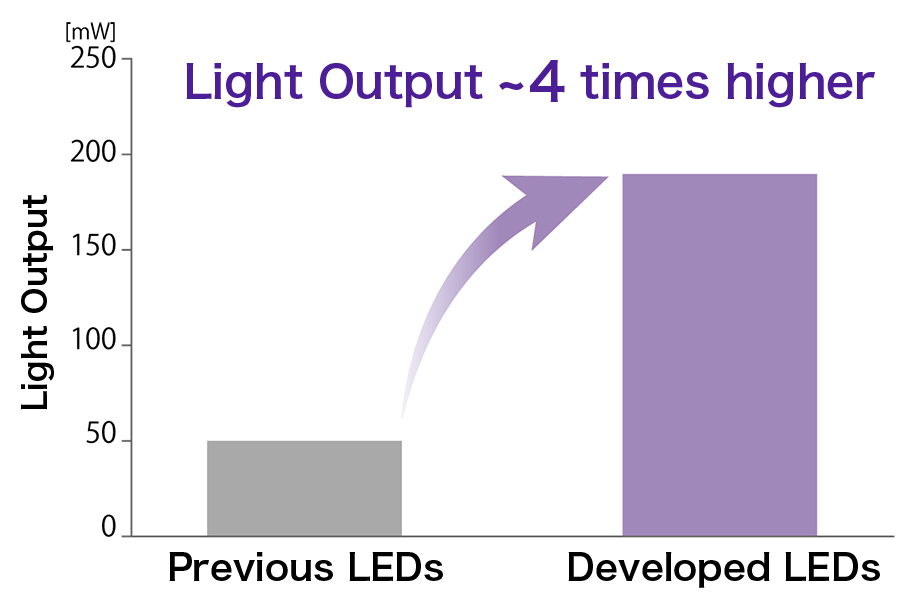
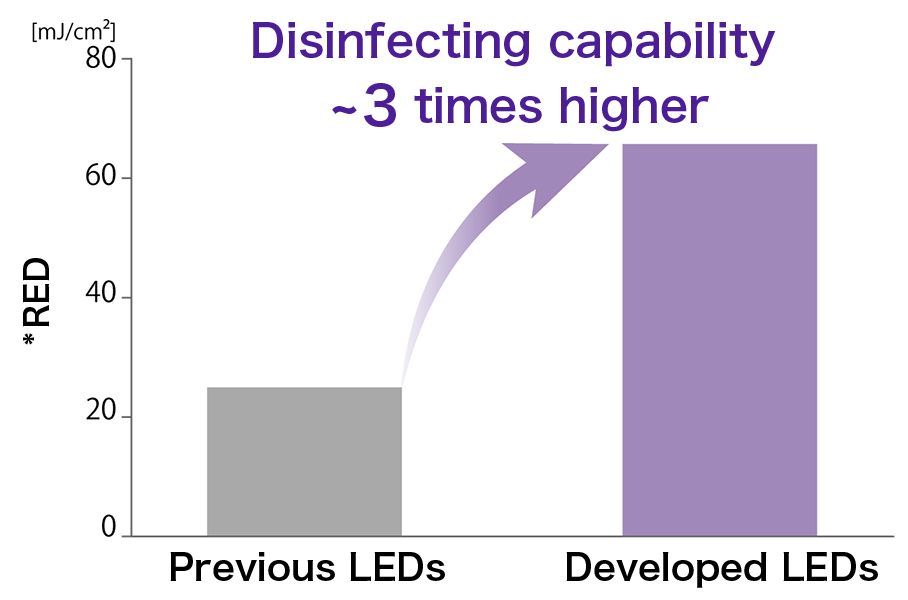
* Reduction Equivalent UV Dose is an indicator of disinfection performance
[Features]
- ✓275nm UV-C LEDs that achieve high light output at the level of 200mW with a single chip driven by a current of 350mA.
- ✓L70; Long life of 15,000 hours.*
- ✓Two line-ups of wide and narrow light distribution can be used to wider range of application.
- ✓Small size of 3.9mm x 3.9mm
- *At room temperature and driven by a current of 350 mA.
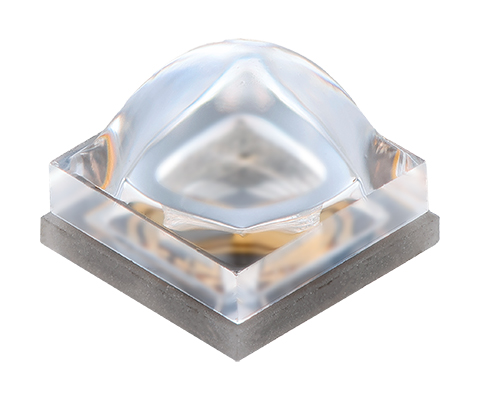
Wide light distribution
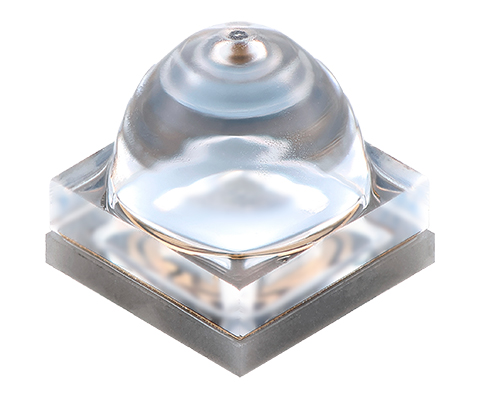
Narrow light distribution
[Typical Specification]
| Items | Standard Value | |
|---|---|---|
| Wide light distribution | Narrow light distribution | |
| Size | 3.9mm x 3.9mm | |
| Peak Wavelength | Typ. 275nm | |
| Forward Current (IF) | 350mA | |
| Forward Voltage (VF) | 5~7V | |
| Light Output | 200mW | 190mW |
| Viewing Angle | 90° | 47° |
Introduction of UV-C LED Water Purification unit
Compact UV-C LED Water Purification unit
Compact type (8L/min) (in mass production)
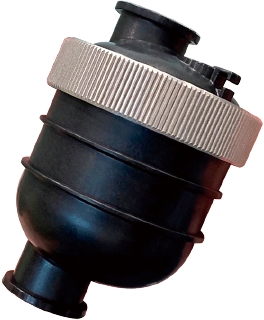
![]()
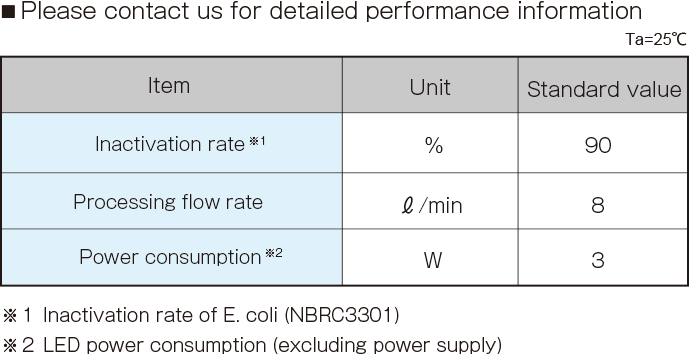
UV-C LED Water Purification Unit
Low flow rate type (under development)
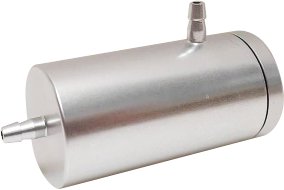
![]()
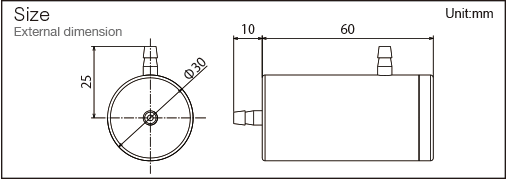
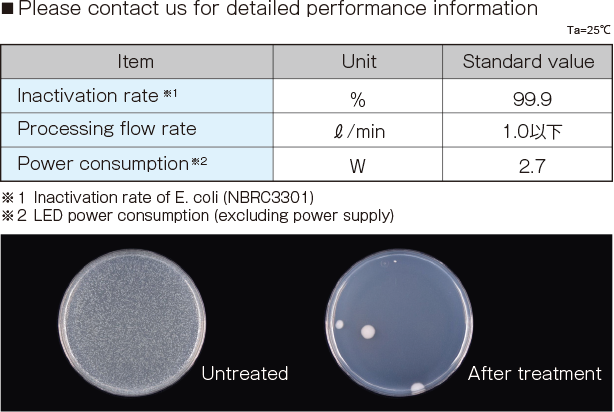
We are also happy to support your needs.
Please feel free to contact us.


